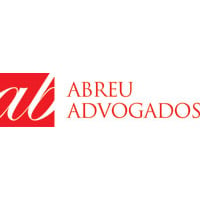

Senior counsel | McDermott Will & Emery






Jean-Claude Petilon
Senior counsel | McDermott Will & Emery
What is the geographical focus of your practice in Africa?
My practice extends to all areas in Africa – but I have had less experience in the Horn countries such as Somalia, Ethiopia and Eritrea.
My African experience started in the then-called Zaïre. I participated in setting up the first US law firm in sub-Saharan Africa, Duncan Allen and Mitchell. I then worked in Zaïre as a legal advisor to the office of the President for two years. Returning to Coudert Frères (a premier international law firm which closed at the end of 2005) I had an African label which was unusual at the time and I began to work based in Paris on African matters not connected with Zaïre. At the time investment in Africa was principally in the petroleum sector and the mining sector.
My experience extends to all of Africa and I presently continue to work on projects throughout Africa for both private and government clients and international institutions such as the World Bank.
Please describe the most important matters you have worked on in the African market in the last two years, including your role and the significance of the matter (if any) to the development of business and law.
The renegotiation of the Mining Conventions in Togo; McDermott Will & Emery advised the government on a project which entailed the renegotiation of five mining conventions with the foreign operators and the negotiation of a new manganese convention. I was “chef de mission” of the project, which included the review of the institutional framework of Togo in view of adapting the contractual regimes to the tax law and of defining the risks of breaching the stability clauses in the conventions.
Advising the Chamber of Commerce of Gabon for the creation of the Gabon Arbitration Centre, and the preparation of the necessary documentation and regulations for its establishment. I was “Chef de Projet” for this assignment. This is a priority project for the government in view of the defunct court system which has an unmanageable backlog.
GECAMINES: Not only was McDermott Will & Emery successful in obtaining an award but said award was enforced. For the last two years I have advised on a pro bono basis the Bureau du Représentant Personnel du Chef de l’Etat de la République Démocratique du Congo, to assist in the fight against sexual violence and recruitment of children in zones of conflicts in the Eastern provinces of the country.
What differentiates your practice from that of other private practice lawyers?
Some of the factors that differentiate my practice (and the McDermott Will & Emery practice) from that of many of our competitors is that I have “on the ground experience” throughout Africa and I have advised on all the areas of the legal spectrum. An intangible attribute is the ability to relate to the local culture and legal context.
Part of the practice in Africa is highly influenced by the human and social environment. Having played in Kinshasa for four years for Matonge, the DR Congo championship basketball team, has allowed me to have a personal rapport with all levels of the population and with government officials and the heads of state, which our competitors may not enjoy.
In sum, we are not a firm that advises on African projects from the “off shore” using contracts subject to foreign law without having a personal nexus to Africa. We are able to respond to clients directly without first referring to a foreign correspondent.
Why has Africa been a particularly strong focus for you?
When I returned to Coudert Frères in the early 1980s, I was seen as an African expert. I had experience in mining and petroleum law and their related production sharing contracts and conventions gained in the then Zaïre. I began travelling throughout Africa advising companies such as Texaco (now Chevron), Mobil, Arco, Sante Fe, Conoco, Occidental, BHP, BRGM, Asarco, and rapidly, what had been an opportunity became a vocation.
I found creativity and the satisfaction of contributing to the development of the legal and social environment, which I did not experience in practicing corporate law in France or in the US. It was a time where there existed few mandatory regulations [and] the consultant was able, through the drafting of contracts approved by the president, which had the force of law, to construct an ad hoc legal environment. Evidently that is no longer the context.
What changes have you seen in the appetite for Africa-based ventures and investments over the last five years?
We have seen a distinct increase in Africa-based ventures in every field. Investors from all countries are competing for investment projects but also commercial ventures. The major infrastructure projects are being awarded to Chinese firms principally on account of their access to financing, competing firms may have to wait sometimes years for major projects to be financed by US Eximbank, whereas the Chinese banks such as China Eximbank can commit to the financing within a few months.
Private equity is a fast growing activity as many local structures and regional regulatory bodies (such as ECOWAS) now provide the legal and economic security allowing for bankable projects.
Are there any aspects of the African legal market that you would like to see change?
The legal market has [already] greatly changed; traditional major firms in Paris and London no longer control the provision of legal services for the major investment projects. Practically every sizable firm in Paris and London is now able to claim that they have a separate Africa practice.
In view, in part, of the above, many prominent foreign firms have opened offices in countries such as Morocco, South Africa (Miranda throughout Africa) wishing to cover the West African countries from the North, and the East Anglican countries from the South. This strategy is doubtful, as it is not certain that investors from the US as an example would seek legal assistance for a mining investment project located in Central African Republic from Morocco, rather than from Paris.
The market is naturally undergoing [further] change. Perhaps what would be desirable is to change the perception of what comprises an African practice. Many firms are recognised to be African experts although they do not directly advise on African law. They give offshore advice using boilerplate contracts subject to foreign law, and refer to local counsel or correspondents to advise on the local content. The only connection with Africa could be the situs of the investment or of the project.
It would be more fitting to characterise a firm as having African expertise not principally on the basis of the size of a project or on the fees derived therefrom, but on its familiarity with local law, with the culture and social considerations, experience in dealing with the local entrepreneurs and the local administrations, its knowledge of the institutional framework and its ability to assess the risks in investing on a particular project based on past experience and the current law.
What megatrends do you think will shape the African market over the coming five years? How (if at all) will these trends affect your practice?
The megatrends are obvious. The Chinese operators will increase their presence in all areas, not only the Government Owned Companies but the private companies which are already participating in legal tenders and cannot presently lose because of their costs which are invariably lower than their competitors.
The Chinese will, however, soon face real competition from the Indians but also in the construction field form Turkish and Moroccan companies. The other obvious megatrend is the dominance that the ITC sector and digitalisation will have on the daily lives of the Africans.